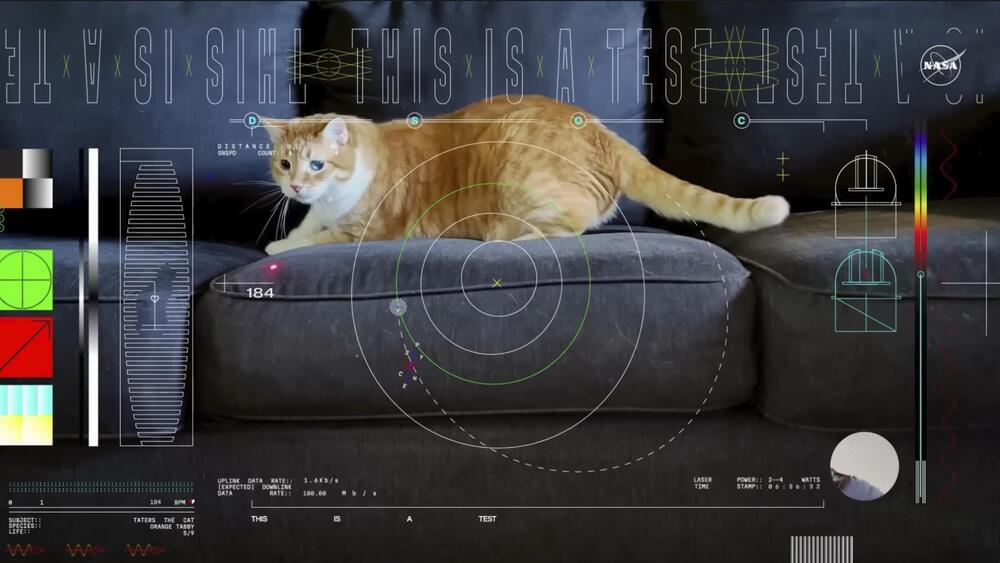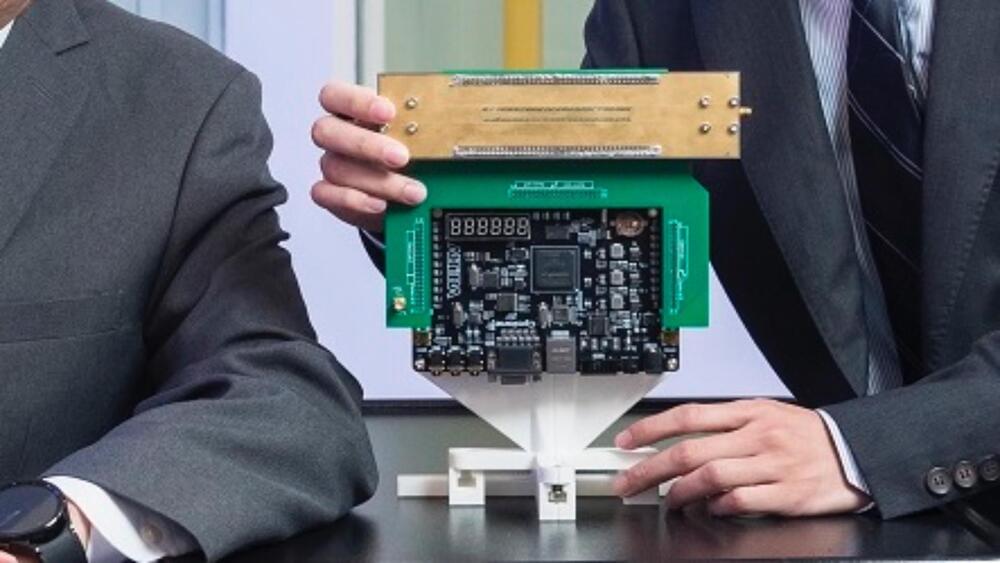A system called Coscientist scours the Internet for instructions, then designs and executes experiments to synthesize molecules.



Google, the internet giant now a subsidiary of Alphabet, announced on Tuesday that it will limit the kinds of queries related to elections that its chatbot Bard and search generative experience can answer ahead of the 2024 U.S. Presidential election.
The company said that the new restrictions will be implemented by early 2024. The company recently made a landmark change to its location data privacy which has made it difficult for law enforcement agencies to access private location data of people near the crime scene and issue geofence warrants.
According to Reuters, the U.S. is not the only country that will witness crucial elections in 2024. India, the world’s largest democracy, and South Africa, among others, will also hold national elections in the same year.


CAPE CANAVERAL, Fla. (AP) — An orange tabby cat named Taters stars in the first video transmitted by laser from deep space, stealing the show as he chases a red laser light.
The 15-second video was beamed to Earth from NASA’s Psyche spacecraft, 19 million miles (30 million kilometers) away. It took less than two minutes for the ultra high-definition video to reach Caltech’s Palomar Observatory, sent at the test system’s maximum rate of 267 megabits per second.
The video was loaded into Psyche’s laser communication experiment before the spacecraft blasted off to a rare metal asteroid in October. The mission team at NASA’s Jet Propulsion Laboratory in Pasadena, California, decided to feature an employee’s 3-year-old playful kitty.
Watch live coverage as SpaceX launches a Falcon 9 rocket with 23 second-generation Starlink internet satellites. Liftoff from pad 40 at Cape Canaveral Space Force Station is scheduled for tonight at 11:01 p.m. EST (0401 UTC). The first-stage booster, making its third flight, will land on the drone ship ‘A Shortfall of Gravitas’ about eight and a half minutes into the flight.\
Our live coverage from Cape Canaveral, with commentary by Will Robinson-Smith, will begin about an hour before launch.\
Videos like this are made possible by the support of our members. Join this channel to get access to perks:\

DARPA has tapped Raytheon to design and develop a wireless, airborne relay system to “deliver energy into contested environments,” as part of its Energy Web Dominance program, in which DARPA wants to be able to power anything from nearly anywhere.
Under a two-year, US$10 million DARPA contract, Raytheon will create a Persistent Optical Wireless Energy Relay (POWER) system, using a series of high altitude unmanned aircraft equipped with laser-based power receiving and transmitting capabilities. Energy will be beamed up to high altitude, then relayed across however many jumps are necessary to reach the target area.
That target might be on the ground, or it might itself be another autonomous aerial platform, in which case it could stay airborne as long as necessary, its batteries being constantly charged from afar.


Researchers call it the ‘Holy Grail’ for physicists and engineers.
A group of researchers, led by Professor Chan Chi-hou from the City University of Hong Kong, created a special antenna that can control all five important aspects of electromagnetic waves using computer software.
The antenna, which they have named ’microwave universal metasurface antenna,’ is capable of dynamically, simultaneously, independently, and precisely manipulating all the essential properties of electromagnetic waves through software control.
“A universal component capable of manipulating all the fundamental wave properties is the Holy Grail for physicists and engineers,” said Professor Chan.
Project Kuiper seeks to deploy a swarm of small satellites into low Earth orbit (LEO) to enhance global broadband access, particularly to remote locations of the planet.
Amazon’s Project Kuiper initiative has marked a significant achievement with the successful in-orbit testing of a critical technology known as optical inter-satellite links (OISL).
Amazon had previously kept details of this technology confidential, but it has now been revealed that OISL enables laser communications between satellites.
The company revealed in a recent press release that this optical communication-based technology employs infrared lasers to transmit data between satellites in low-Earth orbit.

By Chuck Brooks
Realizing the potential of Smart Cities will require public-private cooperation and security by design.
The idea of smart cities is starting to take shape as the digital era develops. A city that has developed a public-private infrastructure to support waste management, energy, transportation, water resources, smart building technology, sustainability, security operations and citizen services is referred to as a “smart city”. Realizing the potential of Smart Cities will require public-private cooperation and security by design.
A smart city functions as an applied innovation lab. Automation, robotics, enabling nanotechnologies, artificial intelligence (human/computer interface), printed electronics and photovoltaics, wearables (flexible electronics), and information technologies like real-time and predictive analytics, super-computing, 5G wireless networks, secure cloud computing, mobile devices, and virtualization are a few of the fascinating technological trends of the digital era that are influencing the development of smart cities.